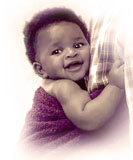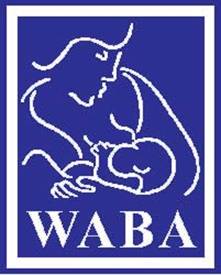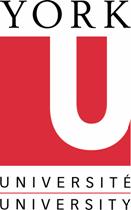| Conference Overview |
| Conference Rationale
Women not only make up half the HIV positive adults in many parts of the world, they are often treated as if they were the "cause" of AIDS. Their lack of empowerment in different cultural settings means that they cannot insist on safer sex. Women are more vulnerable to infections, have higher viral loads, are often diagnosed later, and have poorer access to care and medications. They are most likely to be exposed to abuse and violence, and most often the care-givers for HIV positive family members. In addition, HIV positive mothers are burdened with the dilemma of weighing the risks involved with different methods of infant feeding. The risk of HIV transmission through breastfeeding needs to be balanced against the increased risk of morbidity and mortality when infants are not breastfed. This is only one problem facing mothers in many parts of the world who are HIV positive, but it is one that is not well understood, and is rarely integrated into broader discussions of gender. The issue of breastfeeding is only one example of the complexity of gender issues for women who are HIV positive. In brief, gender inequity underlies the marginalization of women living with HIV/AIDS, and discussions of prevention and treatment must be considered within this context.
Conference Objectives:
-
To link gender to discussions of research, policy and practices around breastfeeding and interventions to reduce infant mortality through the prevention of HIV transmission, including a critical examination of current programmes and practices.
-
To share experiences of HIV + mothers and the challenges of their infant feeding decisions.
-
To provide updated research on pediatric HIV, maternal health, breastfeeding practices, modes of infant feeding, issues around early cessation of breastfeeding and complementary feeding, as well as the health outcomes of exclusive breastfeeding and other infant feeding options.
-
To develop gender sensitive language and knowledge transfer messages to address HIV/AIDS prevention and treatment.
-
To collaborate with new partners (women's groups, HIV groups and others) on breastfeeding and gender issues in the context of HIV/AIDS in order to work towards common positions and action plans in preparation for the August 2006 HIV/AIDS Conference.
Who should attend??
- Researchers, academics and activists working on gender and women's health
- HIV support groups, service providers and researchers
- Breastfeeding researchers/scientists and activists
- Women and mothers living with HIV/AIDS
- Health professionals and health service providers
- Policy makers
- Students, undergraduate and graduate
|
| Policy & Disclaimer |
|
This conference and its organizers do not accept funds or gifts from manufacturers or distributors of breastmilk substitutes, related equipment such as feeding bottles and teats, commercial foods for breastfeeding mothers, or commercial complementary foods.
The guiding policy of this conference is in accordance with these documents:
1. Innocenti Declaration http://innocenti15.net/inno.htm
2. WHO/UNICEF Global Strategy for Infant and Young Child Feeding www.waba.org.my/docs/gs_iycf.pdf
3. International Code on the Marketing of Breastmilk Substitutes and relevant WHA resolutions http://healthydocuments.info/children/doc35.html
4. Framework for Priority Action http://www.waba.org.my/pdf/hiv_if_framework.pdf
Promoting improved infant and young child feeding practices among all women, irrespective of HIV status, brings substantial benefits to individuals, families and societies. Implementing the priority actions described in this framework will contribute to achieving the declared governmental goals of reducing child mortality and HIV transmission, while enhancing support for breastfeeding among the general population and promoting the attainment of other child health-related goals. |
|
|
|
 |
 |
| The conference was organised by WABA and York University. For more information, contact: |
|
Liew Mun Tip, Deputy Director, World Alliance for Breastfeeding Action
PO Box 1200, 10850 Penang, Malaysia, Email: waba@waba.org.my
Dr. Penny Van Esterik, Department of Anthropology, Vari Hall, York University,
4700 Keele St. Toronto M3J1P3, Canada. Email: esterik@yorku.ca Website: www.arts.yorku.ca/anth/ |
|
|
| |
|






